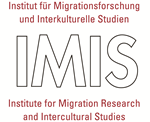| Projektart |
Drittmittelprojekt |
| Finanzierung |
|
| Themen |
- Aufnahme und Integration
- Gewaltmigration
|
| Disziplinen |
|
| Projektwebseite |
www.ruhr-uni-bochum.de |
| Laufzeit |
09/2013 ‒ 08/2016 |
| Geographischer Fokus |
-
Zypern
-
Griechenland
-
Italien
-
Malta
-
Spanien
Zypern, Italien, Griechenland, Spanien, Malta
|
| Institutionen |
|
| Beteiligte Personen |
-
M.A. Juliana Witkowski
-
B.A. Rafael Bohlen
-
Dr. Anna Mratschkowski
-
Prof. Dr. Ludger Pries
|
Kurzbeschreibung
Die Europäische Union beschreibt sich selbst gern als Raum der Freiheit, der Sicherheit und des Rechts. Zehntausende sind zeitgleich im Mittelmeer auf der Flucht nach Europa ertrunken. Die Anerkennungszahlen von Flüchtlingen unterscheiden sich in einzelnen Mitgliedsstaaten der Europäischen Union – trotz des Gemeinsamen Europäischen Asylsystem – massiv. Das Projekt MAREM sucht nach den Gründen der offensichtlich existierenden Lücke zwischen Talk und Action und nutzt hierzu den theoretischen Zugang des Multilevel institutionalist collective actors approach. Es wird untersucht, wie auf lokaler, nationaler und EU-weiter Ebene verschiedene Strategien und Ziele entwickelt und vertreten werden: MAREM nutzt hierzu Netzwerkanalysen, in denen die Ziele, Werte, Aufgaben und die Reichweite der wichtigsten Akteure im Asylkontext beleuchtet werden. Der Hauptfokus lag hierbei auf Akteuren (NGOs, IGOs und Regierungsbehörden) im Mittelmeerraum: In den Jahren 2013 – 2016 wurden in Spanien, Italien, Griechenland, Zypern und Malta insgesamt über 100 qualitative Interviews geführt. Außerdem wurden Homepage- und Dokumentenanalysen angewendet. An den so gesammelten Daten konnten länderspezifische egozentrierte Netzwerkstrukturen abgelesen werden, welche schließlich visualisiert wurden. Es zeigt sich, dass die Schließung der Lücke zwischen Talk und Action maßgeblich von der Reichweite und der Struktur der asylbezogenen organisationalen Netzwerke abhängt: Das Gemeinsame Europäische Asylsystem institutionalisiert sich gleichermaßen von unten wie von oben, in diesem Sinne durch die Verstrickung asylbezogener Organisationen untereinander. Durch die Untersuchung von Netzwerkstrukturen ist es dem MAREM-Projekt auch möglich, genauere Aussagen zu Legitimationsstrategien einzelner Akteure zu treffen. Es wurde deutlich, dass Akteure Talk und Action häufig entlang gegenseitiger Legitimitätserwartungen strukturieren – MAREM ist somit fähig, die Bedeutung und vor allem die Partizipation nicht nur einzelner Akteure, sondern organisationaler Netzwerke, an der Ausgestaltung, Institutionalisierung und Mitbestimmung des Gemeinsamen Europäischen Asylsystems nachzuzeichnen.
Neben dem Ziel, ein besseres Verständnis der aktuellen Europäischen Migrationspolitik, der Situation Asylsuchender und asylbezogener organisationaler Netzwerke zu erlangen, macht MAREM seine Ergebnisse einem breiten Publikum zugänglich. Im Fokus liegt dabei insbesondere das Anliegen, die Öffentlichkeit auf die allgemeine Situation, deren Schwere und Reichweite, hinzuweisen. So ist ein auf Fakten basierter öffentlicher Diskurs denkbar, so ist eine Verbesserung der Europäischen Flüchtlingspolitik möglich. Zu diesem Zweck sind die Ergebnisse von MAREM öffentlich zugänglich: a) Die Finalpräsentationen der Studierenden zu den jährlich stattfindenden Expertenworkshops, b) eine interaktive Google-Earth-Map, zur Nachverfolgung der Hauptfluchtrouten und Hauptakteure, sowie c) zwei Buch-Publikationen der Ergebnisse der Jahre 2015 & 2016.
Das Lehrforschungsprojekt MAREM hat über drei Jahre lang Daten in fünf Mittelmeeranrainerstaaten gesammelt und so stetig den Umfang und die Genauigkeit der organisationalen Netzwerke verbessert. 2015-2016 wurde auch Deutschlang erforscht. Endresultat ist die die Schließung einer Forschungslücke zu der Bedeutung asylbezogener organisationaler Netzwerke und deren Auswirkungen auf das Gemeinsame Europäische Asylsystem.
Abstract
About MAREM:
MAREM (MApping REfugees′ arrivals at Mediterranean borders) is an interdisciplinary research project dealing with the situation of asylum seekers and refugees in the Mediterranean as well as with the corresponding national and European politics. The main goal of the project is to develop a Google-Earth-based documentation (1) of the arrival points and situation of refugees in Cyprus, Greece, Italy, Malta and Spain, (2) of the corresponding national migration regimes, and (3) of the scientific and NGO networks dealing with this topic.
The project aims at drawing public and scientific attention to the situation related to asylum seekers and refugees in the Mediterranean, and at sharing evidence-based knowledge in order to support the improvement of refugees′ situation and of European asylum politics.
Objectives
The aim of the research project MAREM is to gain a solid scientific understanding of current European migration policy, of the situation of asylum seekers and refugees as well as of scientific and non-governmental organisations dealing with this topic. At the same time, available and checked information on this highly up-to-date topic will be made accessible for the broader public by developing a Google-Earth-based information and knowledge platform based on the research findings generated within the project and the corresponding networks.
Background
With the Schengen Treaties (1985, 1990 and Prüm 2005) the border controls between national states involved were reduced and abolished. A coordinated control of EU- (respectively Schengen states') external borders including the new agency Frontex was established. Concerning refugees and asylum seekers the so-called third-country-norm was defined regulating that asylum applications have to be managed in that Schengen-country where the applicant first entered. By this, the EU should be strengthened as a ′space of liberty, security and law′. But in fact, the EU-system of dealing with refugees and asylum seekers faces severe challenges. Refugee movements towards Europe from Asia, Near East and Africa concentrate in the Mediterranean EU-/Schengen-countries that are shaped by economic crisis and structural problems. As part of the EU as ′a space of law′ these countries are challenged to manage all applications of refugees and asylum seekers based on international, European and national law. But national and European institutions as well as many politicians and NGOs question the current situation. More than thousand persons annually die in the Mediterranean when trying to enter the EU. Asylum applications are not always managed efficiently as was proven e.g. by the German Administrative Court. The burden and costs of the European asylum system obviously are not distributed in a fair and balanced way between all member states.
Central research questions
The complex situation of European policies towards refugees and flight is relevant for European societies as well as for social sciences, especially migration research. In the MAREM project three levels are considered:
• The macro political level of European and national migration regimes,
• The meso level of migrants′ and refugees′ organisations and their supporters, and
• The micro level of the individual stories of asylum seekers and refugees.









